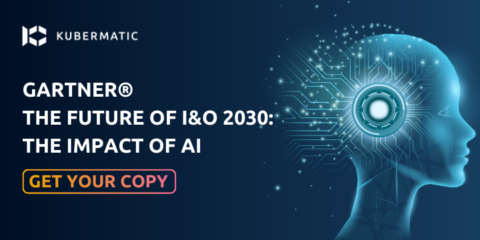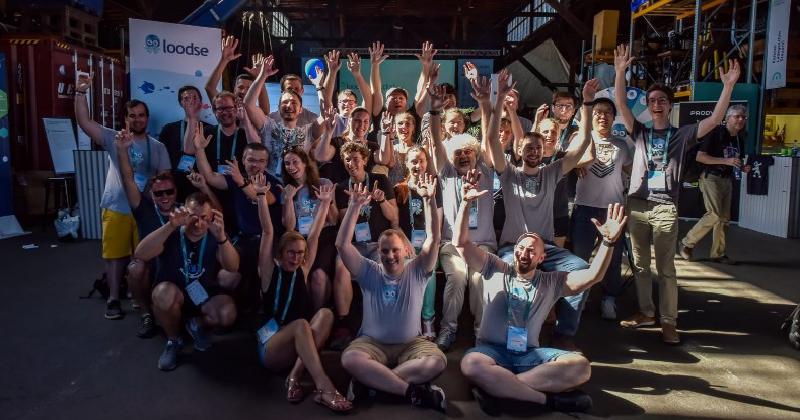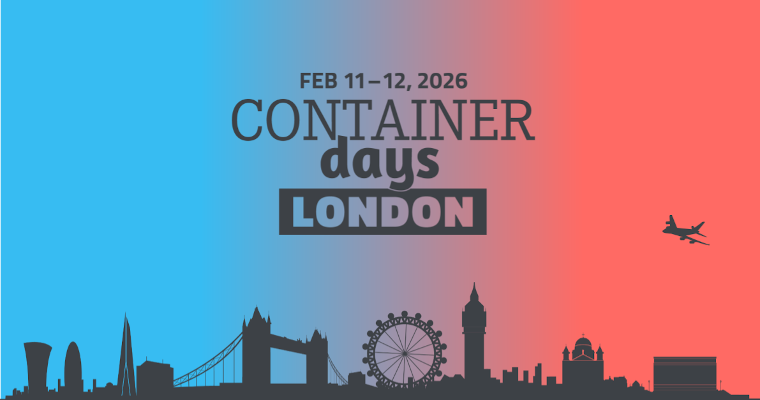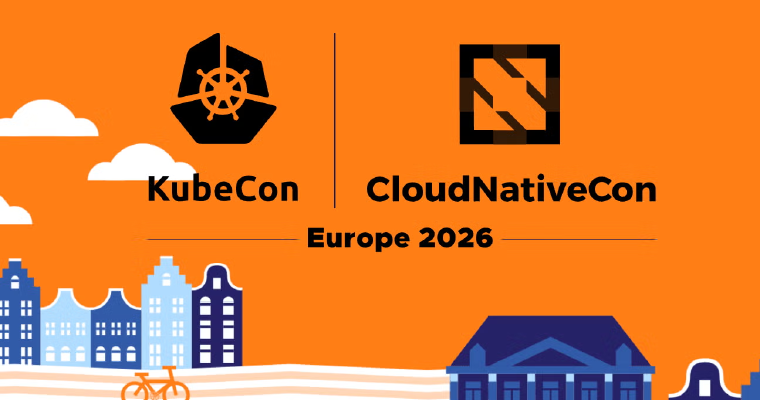In 2016, when we first launched ContainerDays, Docker was THE hot technology and Kubernetes had barely reached release 1.3. We felt that something special was shaping up in the cloud native ecosystem, but it was still very much unclear who the winner would be. Docker Swarm vs. Mesos vs. Kubernetes was a widely debated topic back then.
After traveling around Germany from one Meetup to the other for months, we felt the need to bring together the container community in one place to share their insights, experiences, and ideas. But….that’s a lot easier said than done. Why would anyone believe (and invest) in some guys in funny squid t-shirts insisting that containers are the future of IT infrastructure and a central conference is a fruitful idea? Many, many phone calls and sleepless nights later, we were lucky to have 1&1, Nexinto (today: PlusServer), Google, and CoreOS (today RedHat) supporting this idea. In the end, we were able to gather 220 participants and many great speakers in the harbor of Hamburg to discuss the containerization of the IT industry. And so the story began…


Three years on, it is hard to believe how far and fast the cloud native ecosystem has come. While many things have changed, a few things have become more clear: Kubernetes is the future of IT infrastructure and ContainerDays will continue to be the place to be to discuss and define this future.
With this history in mind, we wanted the fourth edition of ContainerDays to be the best one yet and it certainly delivered. Over 1,000 attendees came from around the world to the Hamburg Harbor Museum to consider cloud native technologies. Day one kicked off with a variety of workshops ranging from Kubernetes 101 to securing container delivery with open source tools. From onboarding beginners to creating a hardened enterprise ready stack, this breadth highlights the strength of the cloud native ecosystem.
The Kubermatic crew ended the first day in three different locations. Some participated in our pre-conference Meetup at PlusServer where Matthias Heussler and Thorsten Jakoby talked about moving legacy systems into more cloud native environments, our speakers joined the Speakers Dinner at the riverside Strand Pauli, and the rest joined our partners and friends from SysEleven on the Feuerschiff.
Day two kicked off bright, early, and hot. In the welcoming words of our CEO Sebastian, 33 degrees and sunny is “typical Hamburg weather.” (Big shout out to the events team for keeping the water and Club Mate well stocked throughout the whole event) Keynotes by Ihor Dvoretskyi from the CNCF and Craig McLuckie from VMware shone the spotlight on the growth and strength of the Kubernetes community.
The next two days were a whirlwind of talks, sunshine, food trucks, and great discussions about where cloud native will head next. While most of the talks were developer focused, what really struck us about them is that they went far beyond just containers and Kubernetes. Zach Arnold spoke about IT security meeting financial services industry standards while Guy Salton focused on using Helm to actually deploy applications. (Also shout out to Henning Jacobs for jumping in and giving an extra talk when one speaker didn’t make it) For us, this transition is indicative of larger trends within the industry. The question is no longer about “IF” containers and Kubernetes should be used, like at the first edition of ContainerDays. The question is now “HOW” do we best use them and “WHAT” extra tooling do we need.
Beyond the conference, ContainerDays also presented the perfect opportunity for all Loodsies to come together as a team to catch up with colleagues, greet new team members, and meet potential new hires. As a remote team, it can sometimes be hard to see how the teams grows, but bringing everyone together into one place really put it into perspective. We’re all guessing how many people we will have to try to fit into the photo next year.
Since the first ContainerDays three years ago, we have been on an exciting journey shaping the future of IT infrastructure. Now that containers and Kubernetes are here to stay, the fun part is seeing all the new possibilities open up. While we don’t have a crystal ball to predict exactly what the future will hold, you can bet it will be discussed and debated at ContainerDays. We can’t wait to see what the next years will bring!
Learn more







